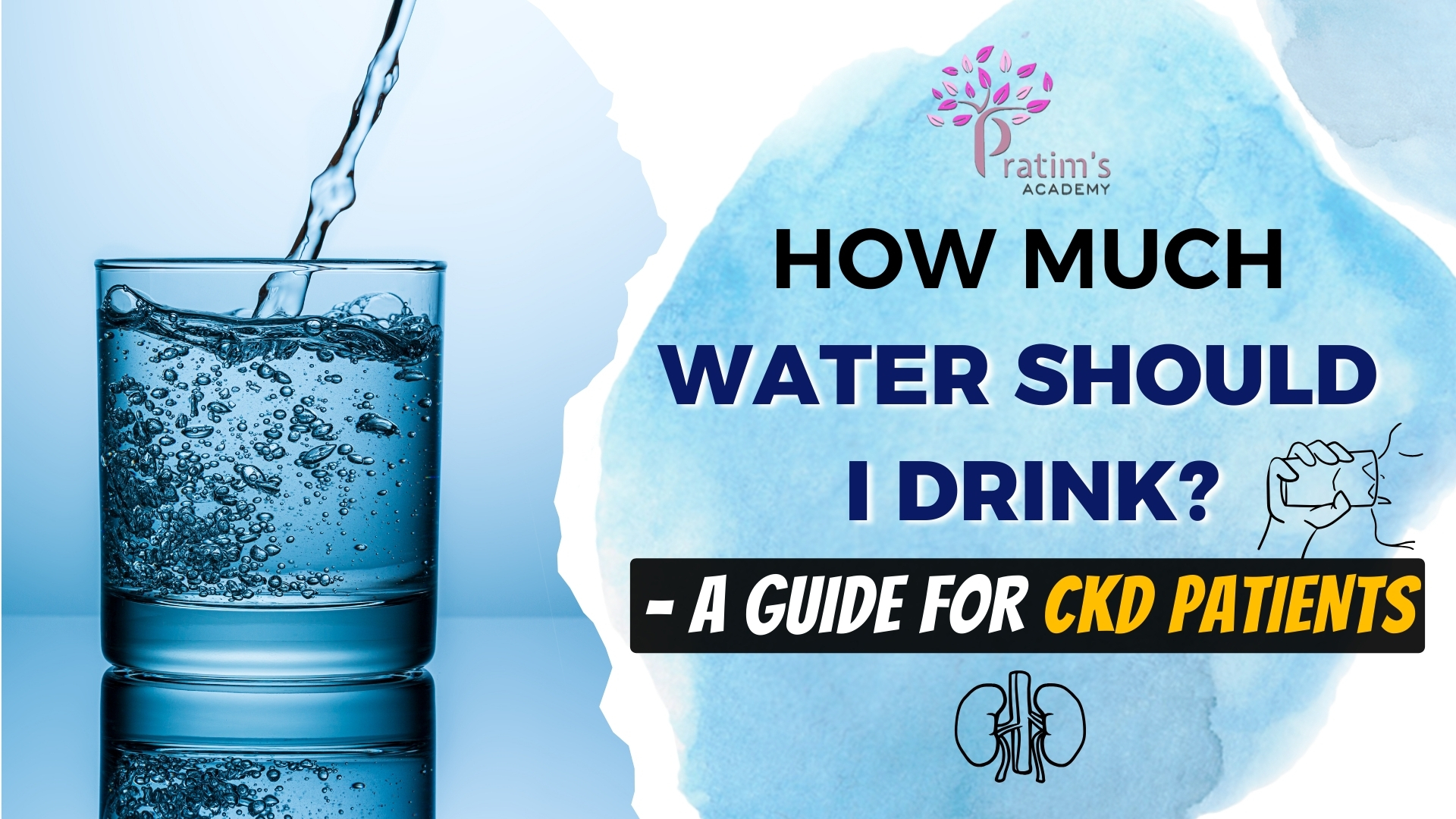How Much Water Should I Drink? – A Guide for CKD Patients
Water is essential for life, but when it comes to Chronic Kidney Disease (CKD) patients, proper hydration is a delicate balance that directly impacts their health. While drinking enough water is crucial for everyone, CKD patients need to monitor their intake carefully to avoid complications.
Why is Water Intake Crucial for CKD Patients?
“Water is the driving force of all nature.” – Leonardo da Vinci
In CKD, the kidneys lose their ability to filter excess fluids and toxins efficiently. Consuming the right amount of water can:
- Prevent fluid retention and swelling.
- Help control blood pressure.
- Reduce the risk of urinary tract infections and kidney stones.
- Minimize the burden on weakened kidneys.
How Much Water is Ideal?
The ideal water intake varies depending on the stage of CKD, urine output, and other health conditions.
For Early-Stage CKD:
- Aim for 1.5 to 2 liters of water per day, unless otherwise advised by your nephrologist.
- Stay hydrated to prevent kidney stones and infections.
For Advanced CKD or Dialysis Patients:
- Fluid intake is restricted to 500-1000 ml plus urine output.
- Excessive water can lead to fluid overload, causing swelling, high blood pressure, and heart complications.
Signs of Proper Hydration
“Thousands have lived without love, not one without water.” – W.H. Auden
- Clear or light yellow urine
- Reduced swelling or edema
- Stable blood pressure
- Improved energy levels
Tips to Manage Water Intake
- Measure your daily water consumption.
- Limit salty and processed foods to reduce thirst.
- Sip small amounts throughout the day.
- Suck on ice chips or sugar-free candies to manage dry mouth.
- Track urine output to balance intake.
Conclusion
For CKD patients, measured water intake is life-saving. Always consult your nephrologist to determine the right amount for your condition. Remember, staying hydrated doesn’t mean overloading your kidneys—it means finding the perfect balance.
References:
- https://pmc.ncbi.nlm.nih.gov/articles/PMC5571765/
- https://pmc.ncbi.nlm.nih.gov/articles/PMC9620929/
- https://www.kidney.org/news-stories/dos-and-don-ts-fluid-management-kidney-disease


